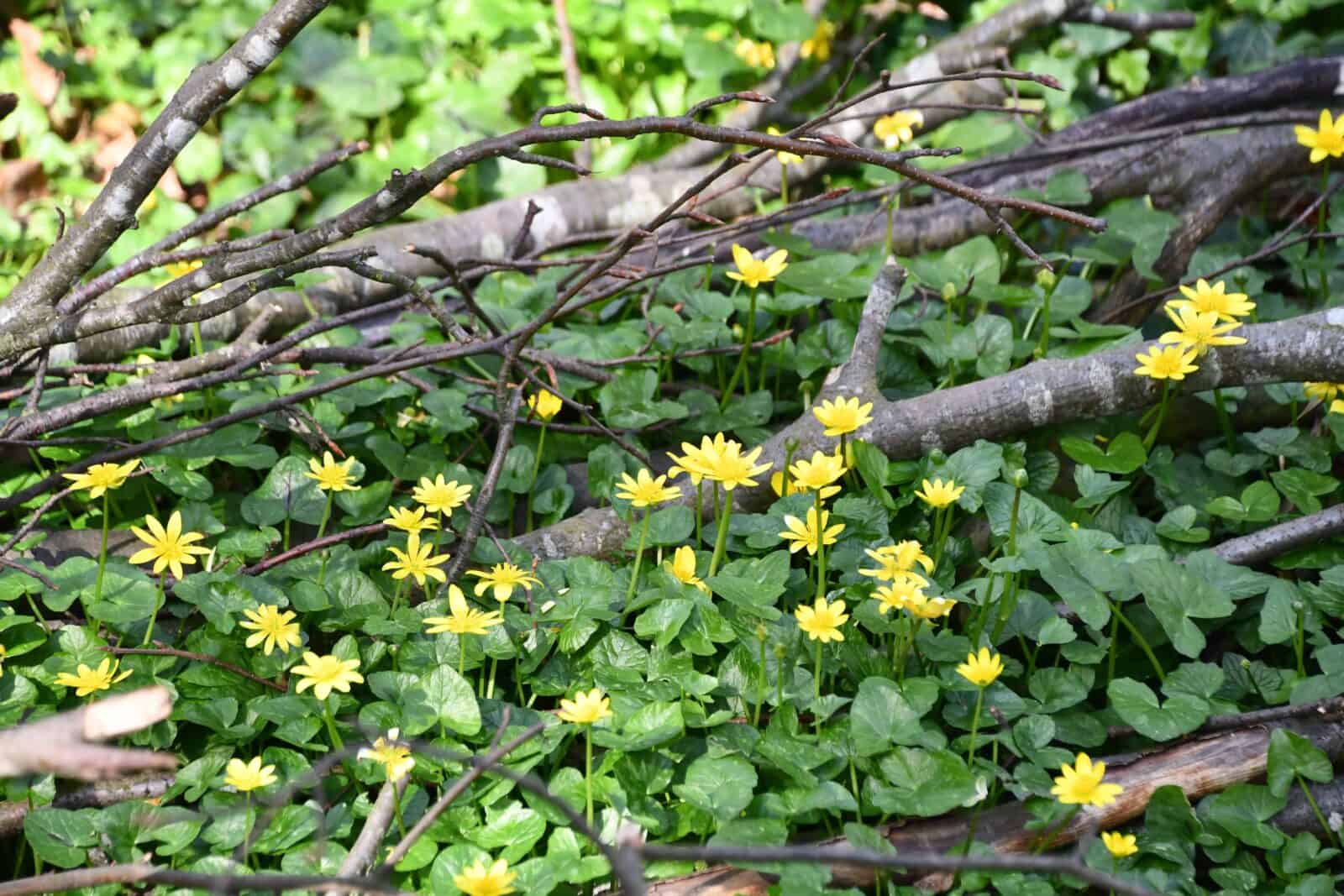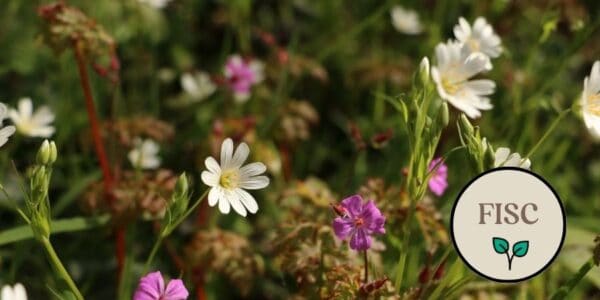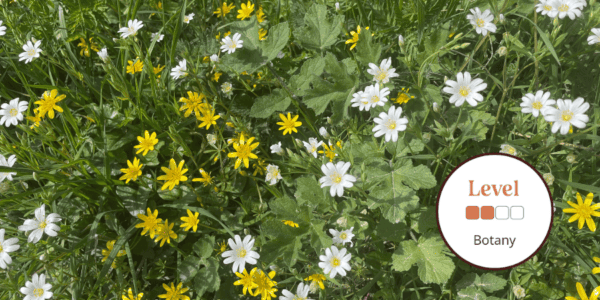Identifying woodland plants is a course for those wishing to develop their skills in woodland plant identification, concentrating not just on trees and the more colourful woodland herbs, but also on the traditionally difficult groups such as woodland grasses, sedges, mosses, liverworts and ferns.
We will visit a variety of different types of woodland to allow us to see a range of woodland species. This may include typical base-rich, species-rich lowland woodlands, sessile oak woods with a distinct ‘upland’ feel to them, wet alder woodlands, a range of scrub communities and secondary woodland. We will discuss aspects of how woodland plants are adapted to succeed in their environments and the communities of plants often found together.
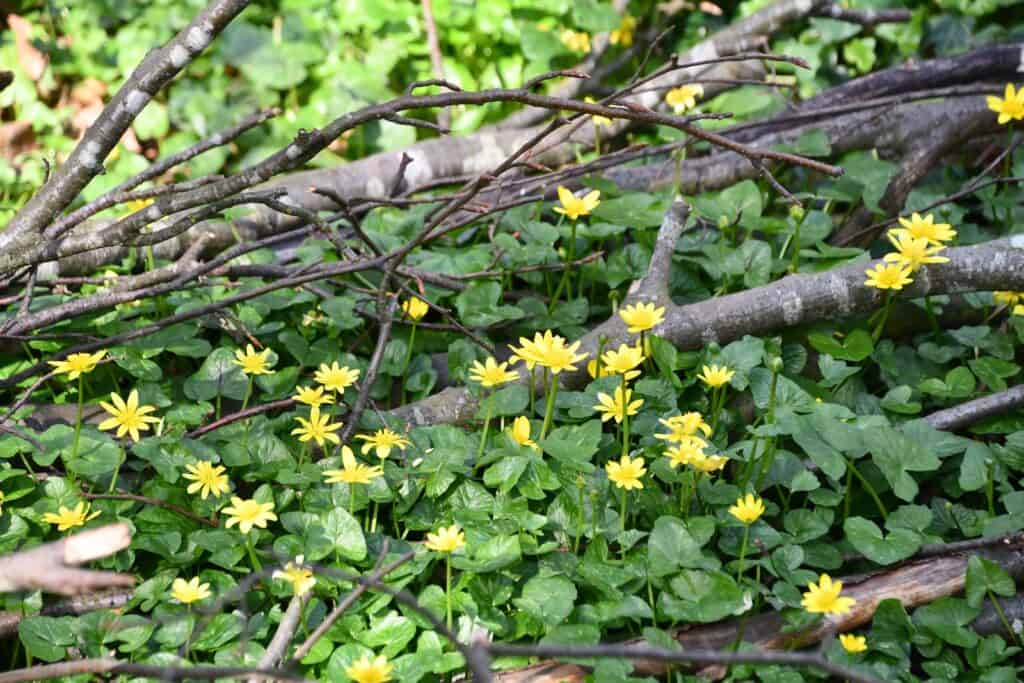
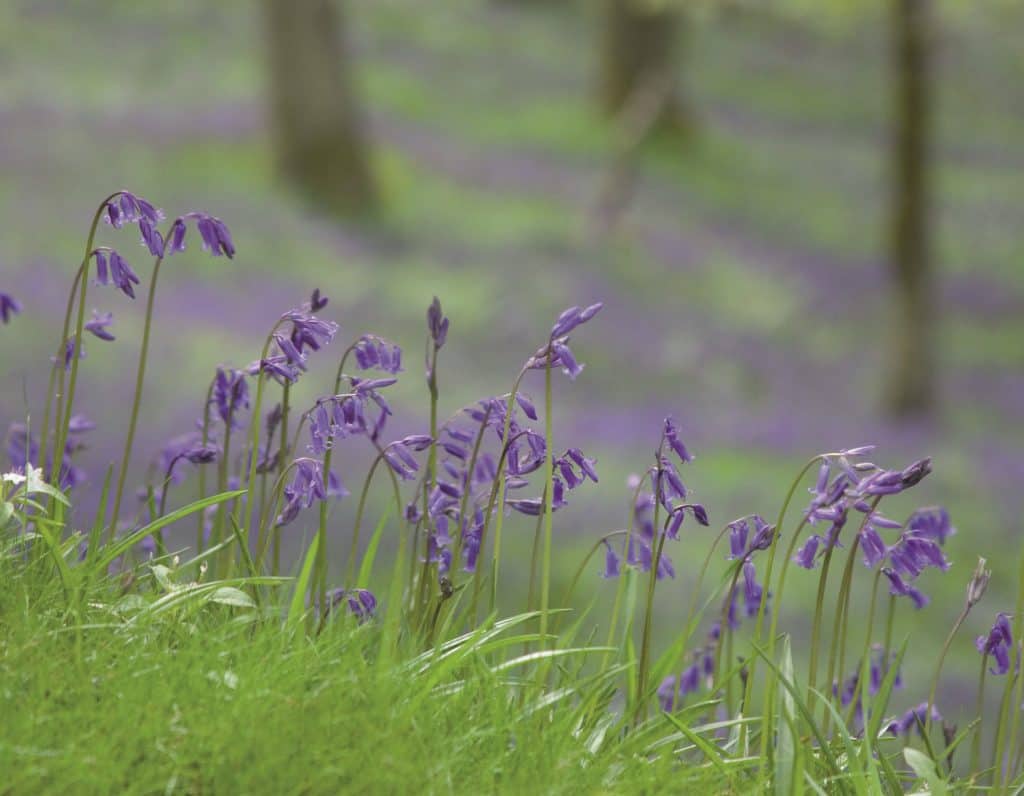
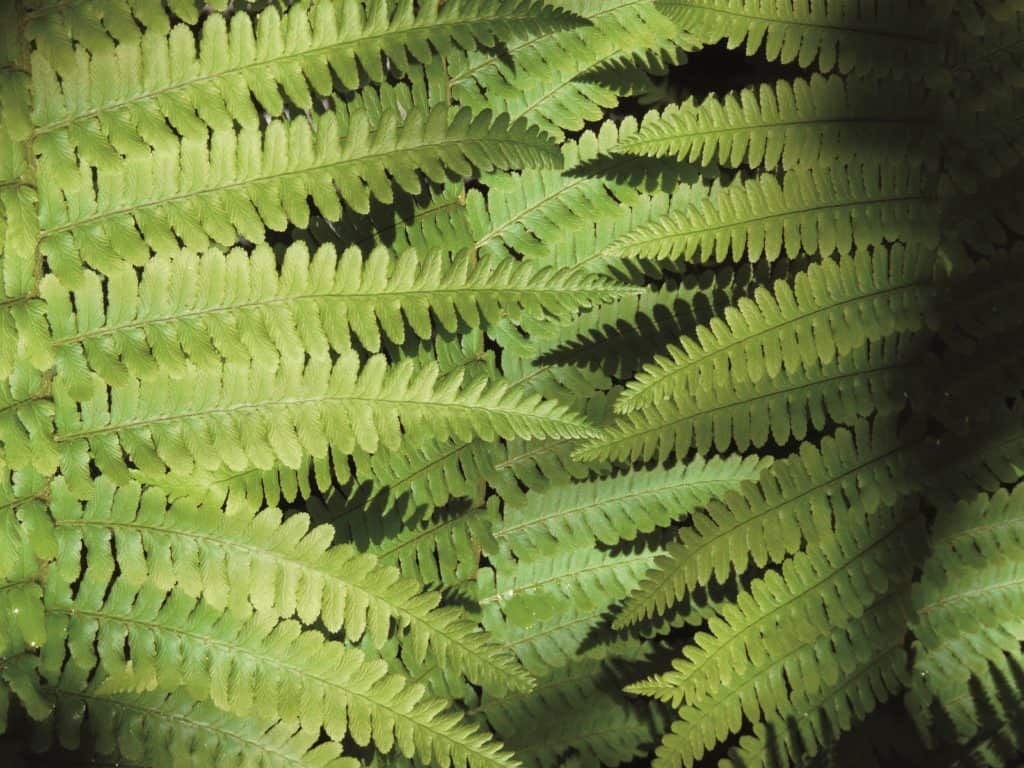
Read More
What will be covered during this course?
- The course will be delivered through a combination of seminars, laboratory identification sessions and practical fieldwork
- Major families of common woodland plants
- Ancient woodland indicator species and similar species
- Collecting and surveying woodland plants
- Observing voucher specimens of woodland plants for reference
By the end of the course, you will be able to:
- Identify a range of woodland plants (including ferns and bryophytes) using dichotomous keys and field guides
- Evaluate whether species are ancient woodland indicators and critically assess the role they have in woodland ecology
Your course will take place at the Preston Montford Centre which is nestled in the heart of Shropshire and surrounded by a diverse natural environment to immerse yourself in, with picturesque views disappearing into Wales. Please note that some of the woodland paths are steep.
Who Should Attend? – Natural history enthusiasts, students, rangers, ecologists, and environmental professionals. This intermediate level course is open to anyone with some knowledge of the subject. This course is for those aged 18 and over only.
Knowledge Level – Intermediate. Level descriptors can be found on the following web-page: Framework and Course Level Descriptors
There are two booking options which all include course tuition, meals and refreshments:
- Non-Resident (Breakfast not included)
- Resident (Sole Occupancy)
For course bookings including accommodation please note bathroom facilities may be shared.
MMU Student Information
MMU students – please email [email protected] to book your course place.
Accreditation
This is one of a series of courses (units) run jointly with Manchester Metropolitan University (MMU) contributing to the MSc ‘Biological Recording and Ecological Monitoring’ and the ‘Postgraduate Certificate in Biological Recording’. MMU students complete assessed work after the course. For further details about Manchester Metropolitan University degree programmes please contact:
Department of Natural Sciences, Manchester Metropolitan University, (Shrewsbury Office). Email: [email protected]
- See the ‘Example Timetable’ and ‘What’s Included’ sections below for more information about this course
- Upon booking you will need to provide individual details of all attendees
- Please email [email protected] if you have any questions
Assessment
For Manchester Metropolitan University students, the Unit will be assessed through, for example, identification tests, survey reports, field journals, production of keys, essays or other forms of assessment. In course tests are optional and less formal for participants who are not MMU students.
MMU students will be required to complete a portfolio comprising of two parts:
Part 1: A test with a range of specimens. Points awarded for correct identification, and critical comparison between specimen and superficially similar/related species. (Equivalent to 500 words).
Part 2: Collect a number of woodland plants (trees, herbs or bryophytes) that are either related taxonomically or look superficially similar and prepare voucher sheets for them. Justify why you have chosen these five, and then describe each specimen in terms of ecology and diagnostic features. Construct a dichotomous key to identify your five specimens. (1500 words).
Example Timetable
Example Timetable
This timetable is subject to change but should give an outline of what to expect.
If you have booked accommodation with the Centre your bedroom will be ready from 3.00pm onward on the day of arrival and we ask that you vacate by 9.30am on the morning of departure.
If numbers are sufficient a station pick up will be arranged at 5.30pm from Shrewsbury Station.
Please arrive in time for the evening meal at 6.30pm on Friday
The course starts after dinner with a classroom session 7.30pm - 9.00pm
The course ends at 4.00pm on the final day.
Time will be made available for eating packed lunches during the day.
Friday evening
Please arrive in time for the evening meal at 6.30pm.
Introduction
Getting to know ferns
Saturday
Morning: Wenlock Edge (field trip)
Afternoon: The Ercall (field trip)
Evening: Getting to know bryophytes
Sunday
Morning and afternoon: Benthall Edge, Ironbridge (field trip)
Evening: Looking at trees on site
Monday
Morning: Haughmond Abbey (field trip)
Afternoon: Open book identification test
What's Included
What’s included?
- Classroom learning covering the theory of the subject
- Field excursions to apply new knowledge
- Expert tuition for which the Field Studies Council is renowned
- Clear objectives and progression
- All meals provided
You can rest assured that the absolute best content from an expert in environmental education will be provided. In choosing a Field Studies Council course, you will be joining thousands of people who learn with us each year.
Bursaries and Subsidies
Natural History Bursaries
There are a number of natural history bursaries available to help with the cost of your course. To find out if you and your chosen course are eligible, read more here.
Before You Attend
There will be a member of staff with first aid training and access to a first aid kit on site. If you have special medical or access requirements, please let us know as soon as possible so we can make any necessary adjustments.
What To Bring
As we will be visiting a number of different sites with varying degrees of slope and wetness, it’s advisable to bring both wellingtons and walking boots, (if you don’t have your own wellingtons, don’t worry - there are adequate supplies available for hire from the Centre).
- A hand lens x10 and/or x20; lenses can be purchased from the Centre shop.
- Field note books are for sale at the centre or you may wish to bring one with you.
- A couple of large plastic bags for keeping specimens fresh.
- A sandwich box, water bottle and vacuum flask.
- A small rucksack and waterproof clothing.
- Sun hat and sun screen.
- Two pairs of fine pointed forceps (available on loan) and/or two mounted needles (not essential).
- Recommended Reading
For reading material, the following would be useful:
- Rose, F. & O’ Reilly, C. (2006). The Wild Flower Key – How to identify wild flowers trees & shrubs in Britain & Ireland. Revised and updated edition. Frederick Warne (Penguin Group): London.
- Streeter, D., Hart-Davies, C., Hardcastle, A., Cole, F., & Harper, L. (2016). Collins Wild Flower Guide – 2nd Edition. Collins: London.
- Stace, C. (2019). New Flora of the British Isles – Fourth edition. Cambridge University Press or Stace, C. (2010). New Flora of the British Isles – Third edition. Cambridge University Press.
- Merryweather, J. & Hill, M. (2007). The Fern Guide - A field guide to the ferns, clubmosses, quillworts and horsetails of the British Isles. 3rd Edition. Field Studies Council AIDGAP series.
- Atherton, I., Bosanquet, S. and Lawley, M. (eds.). (2010). Mosses and Liverworts of Britain and Ireland – a field guide. British Bryological Society.
Opportunities to attend this course
-
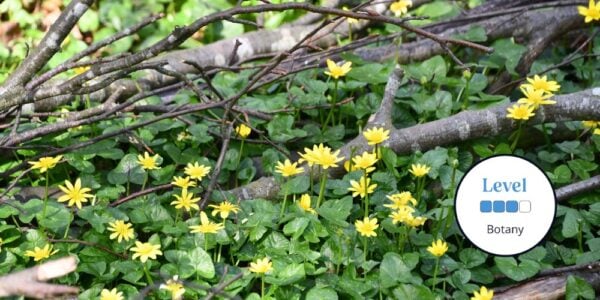
Fri 10, May 2024 18:30 - Mon 13, May 2024 16:00
MMU students - please email [email protected] to book your course place.
Sorry this course is out of stock
Progress Your Learning
This is a training course from the Field Studies Council, delivered by expert tutors with an approachable learning style. After attending this course, you may like to progress your learning with further relevant courses or branch out into other areas of natural history. The Field Studies Council offers both online and in person courses, so you can choose the learning style that suits you best.
The course gives you the opportunity to immerse yourself in a new subject and acquire novel skills. Our online portal gives you time to study at your own pace and fit the lessons around your own schedule.
If you have any questions about our online courses please check our Frequently Asked Questions
Please email [email protected] if you have any questions.
Group Bookings Made Easy
If you have a group of 10 or more individuals wanting to complete one of our courses, our team are available to discuss your options – from discounts to private team courses. Find out more!
You can rest assured that the absolute best content from an expert in environmental education will be at your fingertips. In choosing a Field Studies Council course, you will be joining thousands of people who learn with us each year.

